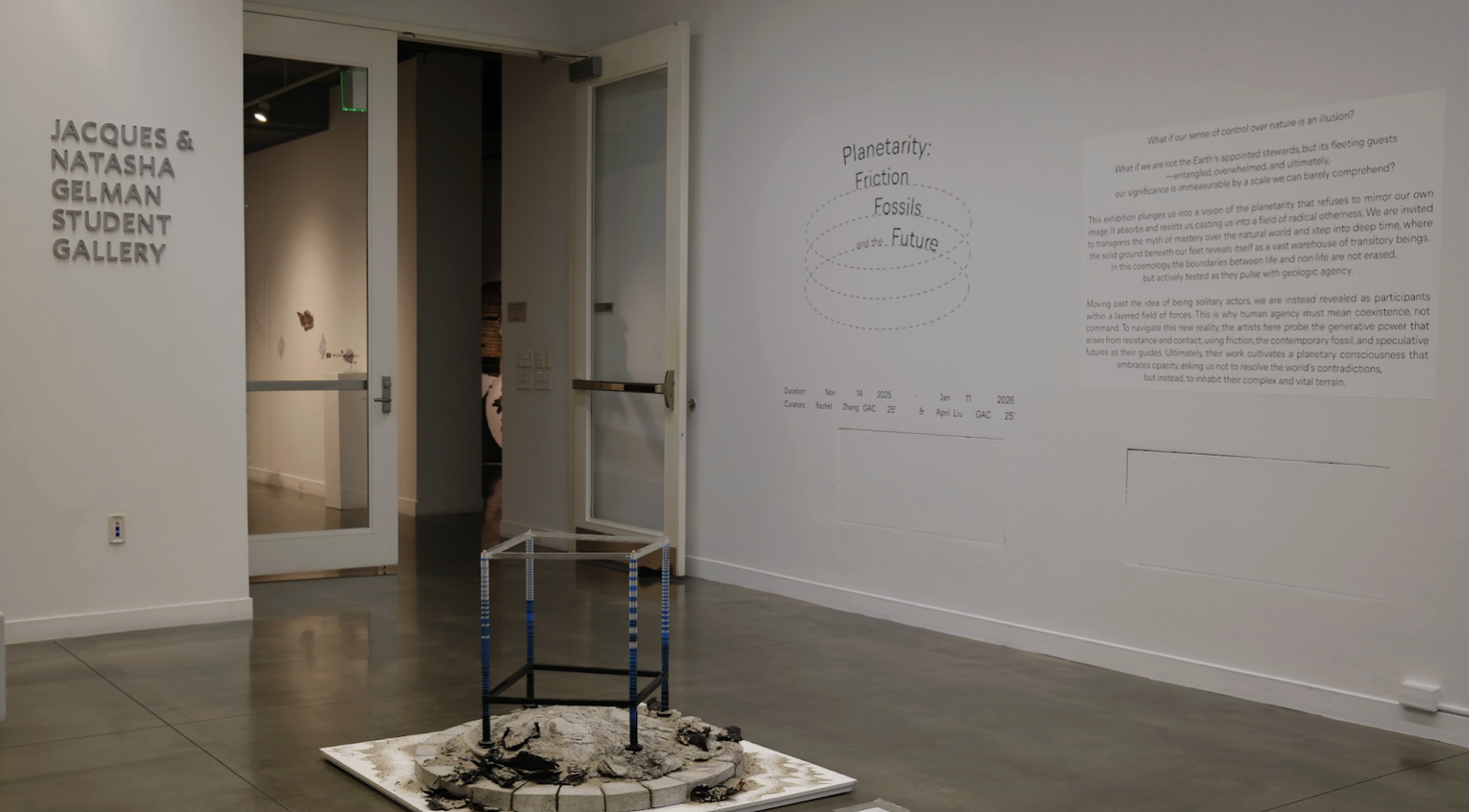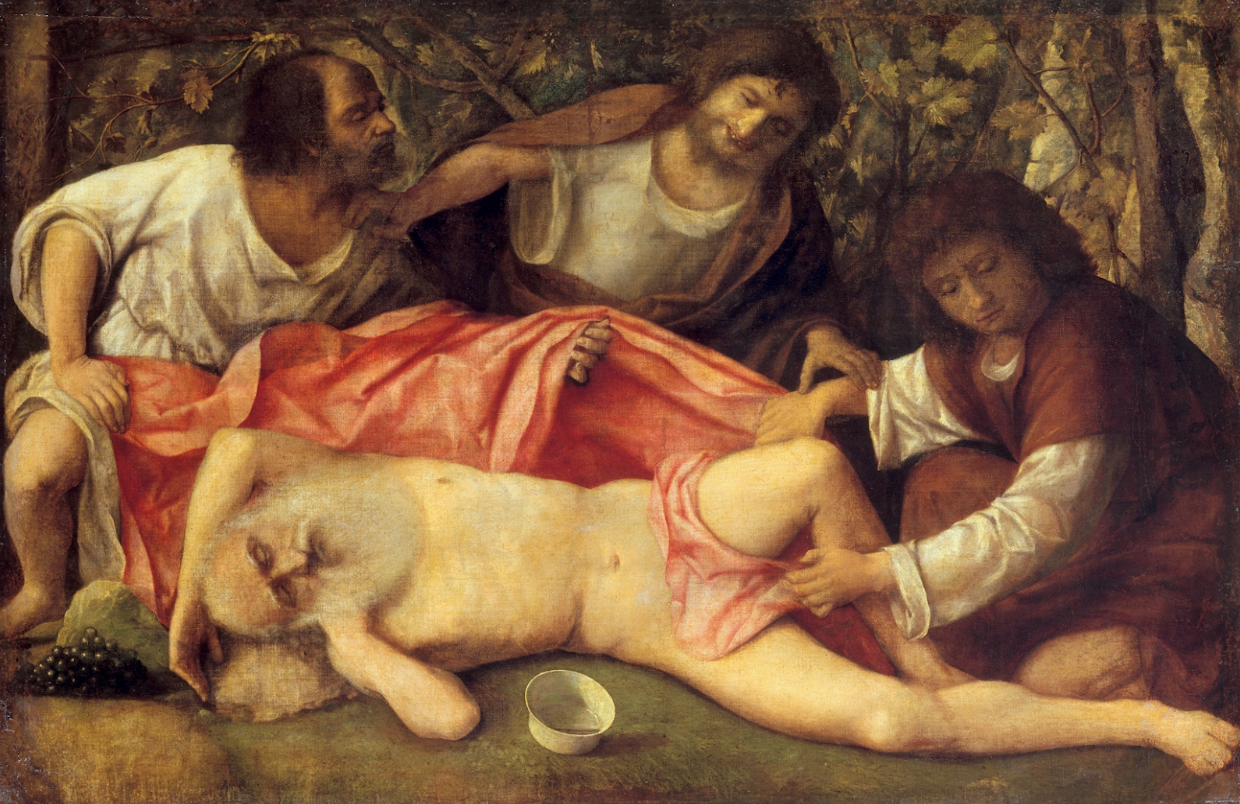From the Art Review Archive, Spring, 2024: Michael DeLaurier talks with the Review about meditation, house parties, and the transformative power of light.
Loose Ends is the most recent project of the Now Here This audio storytelling collective at Brown University, started by Brown seniors Luci Jones and Evelyn McKenney. Ana was connected to Luci through mutual friends in another club to illustrate some cover pieces for some episodes. After listening, she was captivated by the stories, poems, and soundscapes and was dying to know more about the project and the creators’ process. She asked Luci a few questions in a very casual yet enlightening interview.
A: What inspired you to begin "Loose Ends?" Was there a set plan in place, or did it come to you as the project progressed?
L: I've been doing podcasting and radio at Brown for my whole four years and started in high school, so I've always been a huge audio nerd, and I love podcasting as a medium. But I also like creative writing. Now Here This used to be this audio storytelling collective on campus that was pretty freeform, and everyone could do whatever they wanted, do experimental storytelling through audio. But when COVID-19 hit, it fell apart because the people with institutional knowledge graduated without being able to pass it down. So my friend Evelyn McKenney and I wanted to revive NHT and cultivate a new generation of audio storytellers since those people had graduated. The idea of "Loose Ends" came to us in a way – we were at this trailing-off ending of an older generation of alumni who had founded something really cool, so we wanted to feature some of their archival pieces from NHT. Still, then we also wanted people to feel like they could join in. It was kind of this "loose ends" sort of past work being featured again – "Loose Ends Then" is the archival features of past producers – and new producers coming to the forefront, the "Loose Ends Now."
A: Can you speak more about the title's significance – the "What If, If Thens, and Then Whats?" How the website is split into "Loose Ends Now" and "Loose Ends Then?"
L: We originally talked about it in Junior year; I feel like there are so many people you run into and you're like, oh yeah, we had this weird interaction freshman year, and now we just don't really acknowledge each other. There are so many relationships you have no closure on that you kind of just let simmer in the background and then eventually forget about it. Well, what if you actually interrogated those relationships? Like, oh, remember that Tinder date that didn't go well? What if I talked to that guy and asked what happened? You know, those conversations you're not used to having with people. That was the inspiration for Loose Ends.
A: Are there any influential people you sought to have on Now Here This, or did certain people and their stories speak to you?
L: Definitely. Michael Stewart in the English department is our advisor for the project. He was super helpful in guiding our research and helping us collect stories from alums. I'm a relationship-oriented person, so I find stories about love and romance or relationships gone wrong to be the most interesting. Some of my favorites we just put out are Love in Four Hours and A Story About A Story About Me. Love in Four Hours is inspired by "The 36 Questions That Lead to Love" from The New York Times. One of the producers takes the 36 questions that lead to love, and then she's set up on a blind date with another student at Brown. Then they do the 36 questions and have a four-hour date that they record together. She talks about how it was different from a normal date and, you know, whether or not it continues, but I won't reveal! A Story About a Story About Me is about a couple that goes through a breakup, and then the guy makes a short film about the breakup without her permission. She gets mad at him and tells him to take it down, and he says no… then they have a very honest conversation. But it's podcasted through her eyes, so she's also making a story about the breakup. It's just really good.
One other thing I'll say is that Brown has a super impressive legacy of audio producers. Lisa Chow is the executive producer of The Daily and a Brown alum. Anna Martin is the host of Modern Love, and we have pieces from her in the archive. Liza Yager, who worked at Planet Money, came to the Nonfiction Now Brown class to give a speech about creative writing. There's just an amazing legacy of people doing cool work in audio.
A: What tools do you use to find collaborators – through social media or in-person connections and mutual friends? What do you look for in collaborators?
L: Getting most of the archival work was difficult because the website for Now Here This was defunct. So we had to find the original creator of the website, and he had all of the pieces backed up on a hard drive. When we contacted most people about using their pieces through LinkedIn, Facebook, or their old Brown email addresses, most were open to us using their pieces since they hadn't seen the light of day in a while. It was interesting to see their responses since some people were like, "Oh, this is so embarrassing; you can't put this out into the world." We definitely had a few people who were like, "no!" It was also surprisingly hard to track down some people. This semester we're hoping to get more current people! So Today at Brown, Instagram, with our hundred followers… we don't have that many followers.
A: "Loose Ends" is such a beautiful collection of stories, poems, and soundscapes – can you speak a little more about how you feel they are connected?
L: The beauty of a topic like Loose Ends is that anything can fit under it, which is why we chose it; we could have an easy way of curating pieces. We didn't want people to feel confined to a box. The topic itself is literally, do whatever you want. The through line is a sense of curiosity because Loose Ends is about asking questions and seeking answers. Even if you ultimately don't come to a solid conclusion, finding out what the answer might be is exciting. That sense of curiosity is why Brown is a great place, too, because everyone's very curious, creative, and constantly doing things. I think it's a project that amplifies the best things about Brown.
What has been one episode that stood out to you this past issue?
L: I can speak to my own experience; I put together two pieces. Everything is Bottles, which is about – well, I sleep talk every night – how I recorded myself and then did a deep dive into why I sleep talk. It became more of a deep dive about why I need to know why I sleep talk and who I become at night. I have these crazy recordings. I sound like the devil reincarnated! That was a fun – fun but weirdly vulnerable – exercise. I did another piece about the famous audio DJ host who worked at KCRW in Santa Monica, California. That was just a cool historical piece. I have to plug Evelyn's piece, A Love Letter. A Love Letter is really good – it's all about her dating history. It gets into the difference between romantic and platonic love and why we prioritize the former over the latter. I think it's relatable for anyone in college trying to differentiate between love in friendships and love in relationships.
A: What were the driving forces behind your interests in podcasting and audio storytelling? Are there any podcasts that inspired you to start the craft on your own?
L: This American Life is really solid. Ira Glass is a Brown alum too. The serial, This American Life wave got me interested in high school. It's so exciting to see so many different kinds of podcasts now. Some of my favorites are Heavyweight, Still Processing, and Normal Gossip – they are all just really different and really fun. I initially got into podcasting because I did a podcast at my high school about school culture. We immediately jumped into controversial topics for a small private school with a pretty controlled brand image. We got in trouble with the administration, and it was addictive to feel like we were making a change at such a young age. People cared about our work, even if it was them wanting us to not put out anything. I think there's something addictive about the feeling that something you're doing is making an impact. I've just been riding that wave ever since.
A: How has your journey/process with podcasting changed over your time with Now Here This? Do you have any advice for those interested in starting a podcast on their own – something you wish you had known at the beginning of your journey?
L: The barrier to entry is lower than you think it is. Anybody can make a podcast. You have voice memos on your phone. You can record everything because you never know what might be useful. Many people on campus have really cool stories to tell, and you probably have one too. The biggest piece of advice I would give is to look for the story – everything does have a story, which can kind of impede on social relationships if every time someone tells you something, you think, oh, that would be a great podcast! But it is a mindset I find myself in a lot. And just be curious. Listen to a lot of podcasts. That's where I get most of my ideas – listening to other people's work. And if you want to produce a piece, come to Now Hear This because we're looking for people who want to produce!
A: Where do you see the future of podcasting heading – how do you see it changing in the next few years?
L: That's what everyone in the podcasting industry is trying to figure out right now because it's a really crowded space. There are 20 million real crime shows that are all vaguely similar! So everyone's trying to figure out what niche they can fill that still needs to be filled. Maybe the future looks something like Netflix or HBO, but for podcasting: a curated set of professionally developed podcasts that may relate to a series or a central theme produced by professionals. Or something more immersive, like choosing your own adventure through a podcast. Or a single episode of a podcast changing over time – where something about it has changed every time you listen to it. I don't know how to do any of that, but I think that could be more interactive! It would give people a central place to pitch their ideas. Because right now, I feel like This American Life is the staple of podcasting, but nobody gets to work at This American Life who hasn't worked in journalism and media for years. That being said, I do like the DIY aspect of podcasting. The low-buried entry is really nice.





